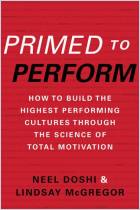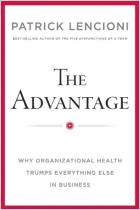Join getAbstract to access the summary!

Join getAbstract to access the summary!
Lukas Michel
The Performance Triangle
Diagnostic Mentoring to Manage Organizations and People for Superior Performance in Turbulent Times
LID Business Media, 2014
What's inside?
Self-help for CEOs: how companies can learn to adapt, make better decisions and exercise agility.
Recommendation
This “Performance Triangle” text is a tool, manual and guide. Swiss management consultant Lukas Michel bases it on data from his extensive study of organizations over the course of his 30-year career. He understands that modern companies must adapt, make better decisions and exercise agility in a system that centers on people. His triangle shows how strong organizations structure themselves. Michel offers a “leadership scorecard” and an organizational diagnostic plus warnings, suggestions and ideas for building a powerful framework for organizational success. Instead of reading it cover to cover, you might carry out the diagnostic on page 18, identify your priorities and turn to the specific sections offering insights into those areas. Michel avoids giving tips or prescribing a “to-do” list, but he shows you how to develop solutions using his “diagnostic self-mentoring” tool for thoughtful executives. getAbstract recommends Michel’s ambitious, demanding book to determined leaders seeking insight into what elements of their operations require attention.
Summary
About the Author
Swiss management consultant Lukas Michel founded Agility Insights AG, in 2002.






















Comment on this summary